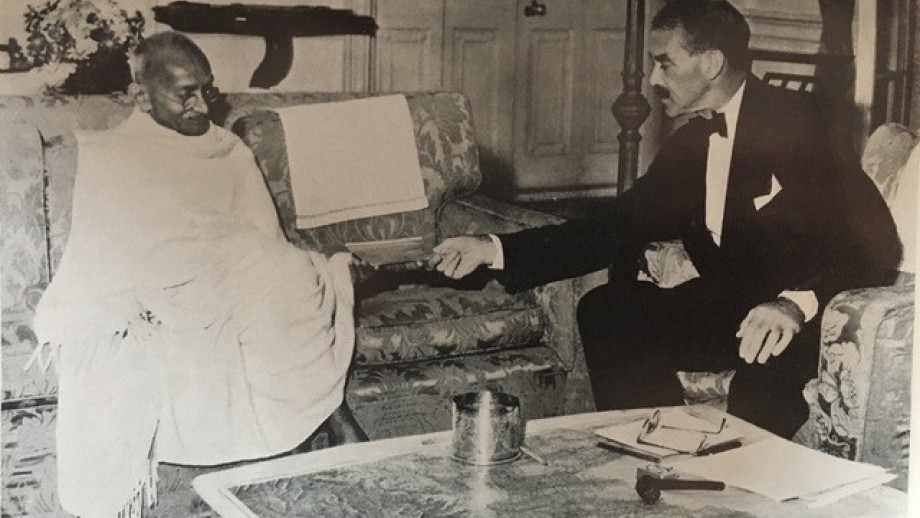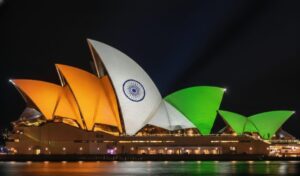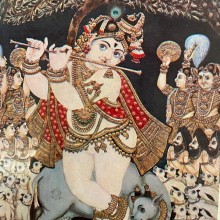
My talk to mark the 155th anniversary of Gandhi’s birth at the ACT Legislative Assembly on 3 October 2024.
Good evening,
I acknowledge the Ngunnawal and Ngambri peoples, the traditional custodians of this land on which we are meeting today.
Thank you, Mr Aggarwal and Comrade Professor Nandan, for inviting me to say a few words.
Ladies and Gentlemen,
In the ten minutes I have, I wish only to add another dimension to the relevance of Gandhi’s philosophy, specifically to contemporary Australia.
It is this: Gandhi was the trailblazer of Multiculturalism long before it became a societal policy objective in the Anglosphere, including Australia.
Gandhi’s life, teachings, and impact are all centred around accepting the Other – embracing the Different Others, regardless of their class, creed, caste, or colour.
Australian multiculturalism shares this fundamental ideal by welcoming the different others who migrate into our midst and finding common ground through dialogue to promote intercultural harmony.
The most notable parallels between the two include:
First, Gandhi advocated religious pluralism and equal respect for all faiths, stressing that every religion had something valuable to offer. He tirelessly advocated inter-faith dialogues.
Thus, his inter-faith prayer meetings, with texts and hymns from different religions, were a remarkable social innovation for those times, something we could do with in our strife-torn times today.
The cardinal point is that his approach was not just passive acceptance of the other. He advocated active religious co-existence.
Similarly, Multiculturalism aims for social cohesion despite inter-faith differences and celebrates the contributions of various religious traditions to the Australian societal mosaic.
Multi-faith co-existence is at the heart of Australian Multiculturalism.
Second, Gandhi firmly propagated his belief in preserving and protecting the different cultural identities that stem from heritage. His underlying principle was to promote peaceful co-existence, not assimilation.
Similarly, Multiculturalism in Australia does not ask people to shed their birth identities. This commitment is indelibly underwritten by Australia’s painful failure of trying to force the assimilation of the First Nation’s peoples into the majoritarian Anglo/Celtic society.
It celebrates cultural diversity and aims for social harmony, allowing various groups with different ways of life to coexist.
Hence, apart from the 250 linguistically distinct peoples of the First Nation, 270 ethnic groups with different ways of life coexist in Australia. That is a far cry from the White Australia policy abolished only 52 years ago.
Third, Gandhi’s philosophy and Multicultural policies take a practical approach to instigating what is, in effect, a silent revolution to chisel new societies within the shells of the old.
Gandhi walked the talk. He rolled up his khadi dhoti and practised what he preached.
For example, communal unity was promoted by satyagrahas, which brought individuals from all the world’s religions into their fold; ashrams encouraged people of different faiths to live in proximity to deepen mutual respect and understanding.
Gandhi’s 1941 Constructive Programme provided a pragmatic roadmap at the grassroots level for social justice and economic equality.
In short, Gandhi was a Constructive Multiculturalist.
Similarly, Multiculturalism in Australia is expressed through practical actions to promote diversity and equity.
Apart from statutory bodies sprinkled around the country to protect and promote multiculturism, community centres, cultural festivals, food fairs, Arts festivals, and interfaith dialogues support its core intent of encouraging the acceptance and knowledge of Different Others.
Ladies and Gentlemen, these examples are just the most apparent aspects of Gandhi’s mission, mirrored by Multiculturalism.
Unfortunately, there are also less savoury parallels between what Gandhi sought to implement and what Australian Multiculturalism seeks to implement.
Gandhi faced daunting challenges that were inevitable in a country as diverse as India.
Australian Multiculturalism faces its own challenges, albeit on a smaller scale, but the substance is the same.
- Gandhi grappled with religious divides. Australia, too, faces similar tensions occasionally. While rifts here between Protestants and Catholics and inter-Slavic strains and stresses are now a faint memory, tensions between South Asian communities are emerging.
- Australia’s quest for a multi-racial national identity beyond British roots mirrors Gandhi’s endeavours for a multifaceted Indian identity. Multiculturalism’s tenet that national identity is not a monolith but a fabric woven from diverse threads is still a work in progress in both countries.
- Furthermore, Australia’s efforts to uplift and empower the First Nation peoples can be considered parallel to Gandhi’s fight against untouchability. Both Gandhi and Multiculturalism advocate genuine inclusion, a struggle that persists in both countries to this day.
Another disturbing development in recent years is the nationalistic backlash in India itself against Gandhi’s principles and teachings. And in Australia, the matrix of Multiculturalism is being confronted by critical questioning, often on ideological grounds.
This anniversary reminds Australians of the Indian heritage of Gandhi’s ideals.
Our commemoration today must be marked by a renewed commitment to combat the social ills that Gandhi struggled against, such as intra-faith feuds, populist politico-religious ideologies or the Caste Apartheid.
Back in 1916, at Columbia University, Dr Ambedkar remarked that “If Hindus migrate to other regions on earth, Indian caste will become a world problem”
That is already evident in the US and the UK. Regrettably, its shoots are also emerging even here, which, apart from anything else, is grossly offensive to a society that cherishes the civilisational value of egalitarianism.
In sum, Gandhi’s holistic approach to social justice and co-existence aligns with multicultural values. It is as relevant to us in Australia as it is to Indians in India.
I conclude with the thought that in India, Gandhi is recognised as the Father of the Nation.
He could also be justifiably designated as the Father of Multiculturalism.
Thank you.



